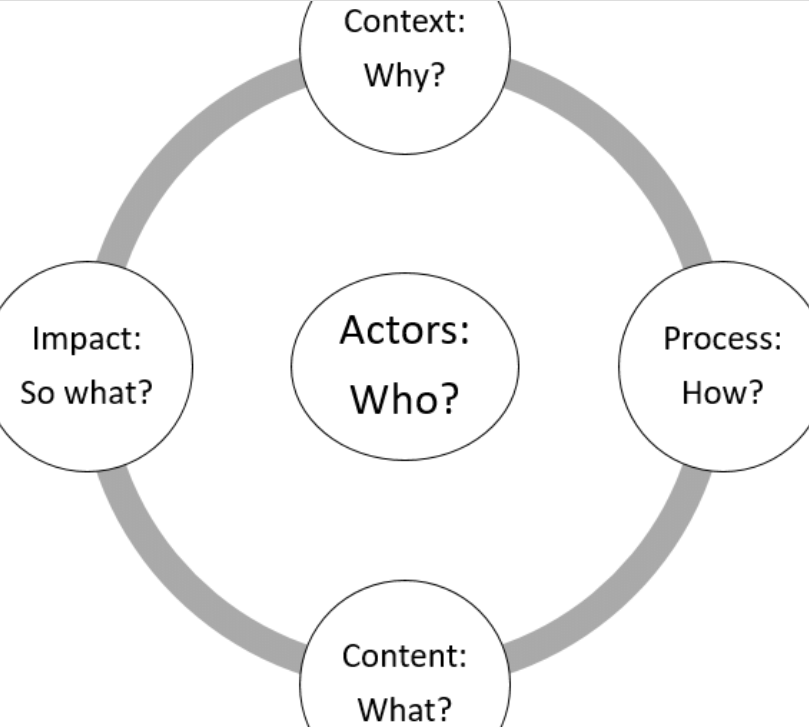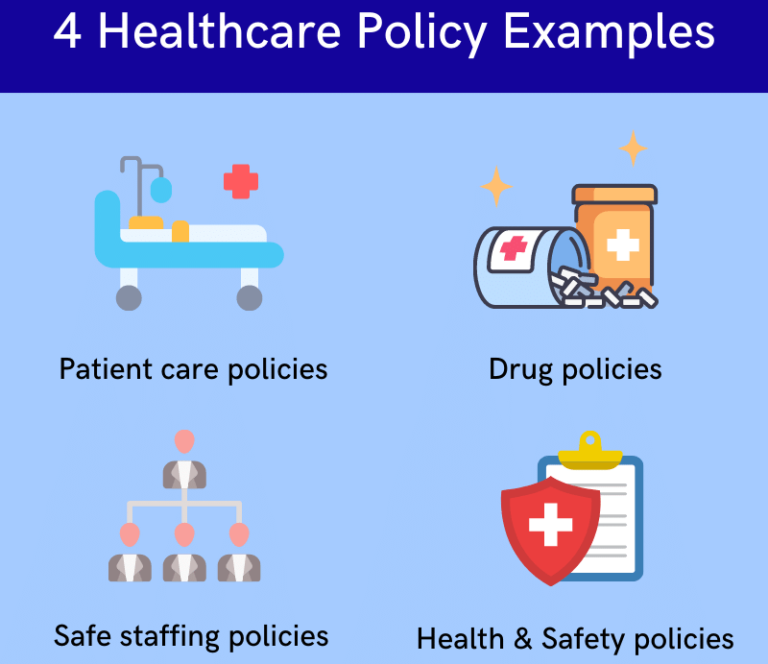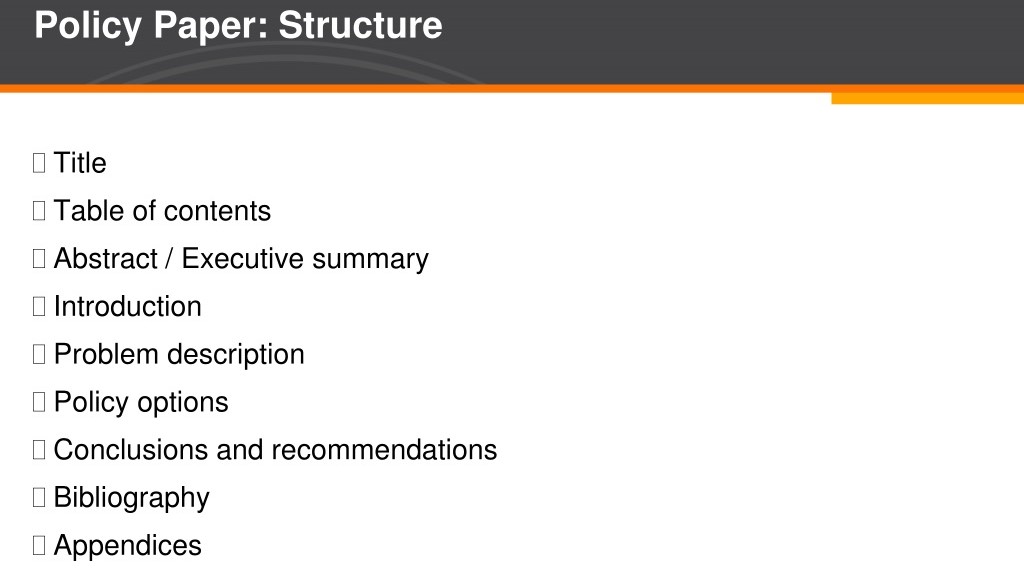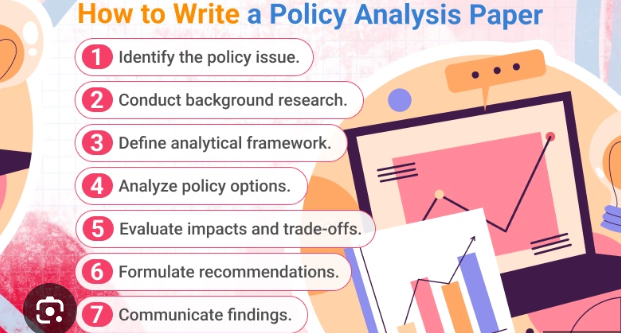
Table of Contents
Nursing policy analysis papers delve into the intricate world of healthcare policy, examining its impact on nursing practice, patient care, and the broader healthcare system. This type of paper requires a deep understanding of policy analysis techniques, a critical eye for examining evidence, and a strong commitment to advocating for positive change within the nursing profession.
This comprehensive guide will provide you with a roadmap for navigating the process of writing a successful nursing policy analysis paper.
The Fundamentals of a Strong Nursing Policy Analysis Paper
Before embarking on the writing process, it’s essential to grasp the core concepts of policy analysis. Policy analysis involves a systematic and objective evaluation of policy proposals, existing policies, or potential policy changes. It aims to assess the effectiveness, efficiency, equity, and feasibility of a policy by considering its potential benefits, costs, and unintended consequences.
A. Types of Policy Analysis
Policy analysis can be broadly categorized into several types:
- Descriptive Analysis: This type of analysis focuses on describing a policy’s features, its implementation process, and its impact on relevant stakeholders.
- Evaluative Analysis: This approach examines a policy’s effectiveness in achieving its intended goals. It often uses quantitative methods like cost-benefit analysis or impact evaluations to measure the policy’s outcomes.
- Prescriptive Analysis: This analysis seeks to identify the most appropriate policy option to address a specific problem. It involves comparing different policy alternatives, weighing their potential benefits and drawbacks, and recommending a course of action.
B. Key Steps in Policy Analysis
A robust policy analysis follows a structured process, typically involving the following steps:
- Define the Policy Issue: Clearly identify the policy problem you’re investigating, its scope, and its significance.
- Develop a Framework: Choose an analytical framework to guide your investigation, such as a cost-benefit framework or a framework based on ethical considerations.
- Gather Evidence: Collect relevant data and information about the policy, including its history, implementation, costs, outcomes, and stakeholder perspectives.
- Analyze the Evidence: Utilize qualitative and quantitative techniques to analyze the collected data, identifying key trends, patterns, and relationships.
- Draw Conclusions: Formulate clear and concise conclusions based on your analysis, addressing the policy’s effectiveness, feasibility, and ethical implications.
- Formulate Recommendations: Offer concrete recommendations for policy changes or improvements, supported by your findings and evidence.

Selecting a Nursing Policy Analysis Paper Topic
Choosing the right topic for your nursing policy analysis paper is crucial for ensuring a compelling and impactful piece. Consider these factors when selecting your topic:
- Relevance to Nursing Practice: The chosen topic should directly impact nursing practice, patient care, or the broader healthcare system.
- Policy Significance: The policy should have significant implications for the nursing profession, patient outcomes, or healthcare access.
- Availability of Evidence: Ensure there is sufficient evidence to support your analysis, including research studies, policy documents, and stakeholder perspectives.
- Personal Interest: Choose a topic that genuinely interests you, as this will enhance your motivation and engagement throughout the writing process.
Crafting a Strong Thesis Statement
A well-crafted thesis statement is the cornerstone of any successful nursing policy analysis paper. It serves as the central argument that your entire paper will support. Your thesis statement should clearly articulate your position on the policy and provide a concise summary of your analysis.
A. Key Characteristics of a Strong Thesis Statement:
- Clear and Concise: The statement should be easily understandable and express a clear position on the policy issue.
- Specific and Focused: Avoid overly broad statements; focus on a specific aspect of the policy or its impact on a particular stakeholder group.
- Arguable: The thesis statement should present an opinion or perspective that can be debated or supported with evidence.
- Reflective of Your Analysis: The thesis should accurately reflect the main conclusions you draw from your analysis and your recommendations for policy change.
Structure and Organization of a Nursing Policy Analysis Paper
A well-structured and organized nursing policy analysis paper enhances its readability and clarity. Here’s a suggested structure for your paper:
A. Introduction
- Hook: Start with a compelling statement or statistic that highlights the importance of your chosen policy issue.
- Background Information: Provide context for the policy, including its historical development, current state, and key stakeholders.
- Problem Statement: Define the specific problem or issue that the policy aims to address.
- Thesis Statement: Clearly state your argument about the policy and its impact.
B. Literature Review
- Relevant Research: Summarize key findings from existing research on the policy issue, focusing on studies that provide evidence for or against its effectiveness, efficiency, and equity.
- Policy Documents: Review relevant policy documents, including laws, regulations, guidelines, and reports, to understand the policy’s objectives, implementation strategies, and intended outcomes.
- Stakeholder Perspectives: Explore perspectives of key stakeholders, including patients, nurses, healthcare providers, policymakers, and advocacy groups, to gain insights into the policy’s impact on different groups.
C. Analysis
- Framework: Clearly state the analytical framework used to guide your analysis, such as a cost-benefit framework, an ethical framework, or a framework based on equity considerations.
- Data Analysis: Analyze the evidence you’ve gathered, focusing on the policy’s effectiveness in achieving its intended goals, its efficiency in utilizing resources, its impact on equity, and its feasibility of implementation.
- Critical Evaluation: Offer a critical evaluation of the policy, addressing its strengths, weaknesses, potential unintended consequences, and ethical implications.
D. Discussion
- Key Findings: Summarize the key findings from your analysis, highlighting the most significant observations and insights.
- Implications: Discuss the implications of your findings for nursing practice, patient care, and the broader healthcare system.
- Comparison to Other Policies: Consider how the policy compares to similar policies in other jurisdictions or contexts.
- Future Directions: Suggest potential future directions for research, policy development, or implementation strategies.
E. Conclusion
- Restate Thesis: Briefly reiterate your thesis statement and summarize the main points of your analysis.
- Policy Recommendations: Offer specific and actionable recommendations for policy changes or improvements, supported by your findings and evidence.
- Call to Action: End your paper with a call to action, encouraging readers to engage in further discussion, advocacy, or research related to the policy issue.
Writing Style and Formatting
A strong nursing policy analysis paper should adhere to the following writing style and formatting guidelines:
- Academic Style: Use a clear, concise, and objective writing style, avoiding jargon and overly technical language.
- Formal Tone: Maintain a professional and formal tone throughout your paper.
- Third-Person Perspective: Use the third-person perspective throughout the paper, avoiding personal opinions or subjective statements.
- APA or Chicago Style: Follow a consistent citation style, such as APA or Chicago, to accurately cite all sources and avoid plagiarism.
- Proper Grammar and Punctuation: Ensure correct grammar, punctuation, and spelling throughout the paper.
Essential Tips for Writing a Strong Nursing Policy Analysis Paper
- Start Early: Begin your research and writing process well in advance of the deadline to allow ample time for thorough research, critical analysis, and revision.
- Consult Experts: Seek guidance from faculty members, nurse researchers, or policy experts in your field to gain valuable insights and feedback on your topic and analysis.
- Focus on Evidence: Base your arguments and conclusions on solid evidence, including research studies, policy documents, and stakeholder perspectives.
- Engage with Counterarguments: Consider opposing viewpoints and counterarguments to demonstrate a balanced and comprehensive analysis.
- Seek Feedback: Share your drafts with peers or mentors for feedback and suggestions for improvement.
- Revise and Edit: Carefully revise and edit your paper for clarity, coherence, and accuracy before submission.
Examples of Successful Nursing Policy Analysis Papers
To gain inspiration and guidance, explore published nursing policy analysis papers that have effectively examined important policy issues. Search reputable academic journals, such as the Journal of Nursing Scholarship, the Policy, Politics & Nursing Practice, and the Nursing Outlook, for examples of high-quality nursing policy analysis papers.

The Importance of Nursing Policy Analysis
Nursing policy analysis papers play a critical role in shaping the future of nursing practice and patient care. By providing a critical examination of policies affecting the nursing profession, these papers:
- Inform Decision-Making: They provide evidence-based information to policymakers, administrators, and other stakeholders, helping to inform their decisions and guide policy development.
- Advocate for Positive Change: They advocate for policies that promote safe, effective, and equitable patient care, ensuring that nurses have the resources and support they need to provide optimal care.
- Elevate the Nursing Profession: They raise awareness about the vital contributions of nurses to the healthcare system, empowering the nursing profession to play a more active role in policy discussions and shaping healthcare policy.
Common Mistakes to Avoid in Nursing Policy Analysis Papers
While crafting a nursing policy analysis paper, it’s crucial to avoid common pitfalls that can undermine the paper’s strength and impact. Here are some common mistakes to steer clear of:
1. Lack of Focus and Clarity: A well-structured nursing policy analysis paper maintains a clear focus on the specific policy under examination. Avoid attempting to tackle too many policies or issues within a single paper. A broad scope can lead to a superficial analysis and diminish the paper’s effectiveness.
2. Insufficient Research and Evidence: A strong nursing policy analysis paper relies on a solid foundation of research and evidence. Avoid relying solely on anecdotal information or personal opinions. Back up your arguments with robust evidence from peer-reviewed research, relevant policy documents, and credible sources.
3. Ignoring Counterarguments: A balanced and persuasive nursing policy analysis paper acknowledges and addresses opposing viewpoints. Avoid presenting a one-sided argument. Consider counterarguments and offer reasoned responses to demonstrate a nuanced understanding of the policy issue.
4. Weak Thesis Statement: A clear and focused thesis statement is the cornerstone of any nursing policy analysis paper. Avoid a vague or unfocused thesis. Ensure your thesis statement clearly articulates your position on the policy and provides a concise summary of your analysis.
5. Insufficient Analysis: Simply summarizing the policy or existing research is not enough. A strong nursing policy analysis paper requires a deep dive into the policy’s effectiveness, efficiency, equity, and feasibility. Utilize appropriate analytical frameworks and methods to thoroughly examine the policy’s implications.
6. Ignoring Ethical Considerations: Ethical considerations are paramount in healthcare policy. A comprehensive nursing policy analysis paper must address the ethical implications of the policy, considering its impact on patients, nurses, and the healthcare system.
7. Lack of Actionable Recommendations: A strong nursing policy analysis paper offers actionable recommendations for policy change or improvement. Avoid vague or impractical suggestions. Ensure your recommendations are grounded in evidence and feasible within the existing healthcare context.
8. Poor Writing Style and Format: A well-written nursing policy analysis paper utilizes clear, concise language and adheres to proper formatting guidelines. Avoid jargon, overly technical language, and inconsistencies in formatting. Use a consistent citation style (APA or Chicago) to maintain academic rigor.
9. Insufficient Proofreading and Editing: A polished nursing policy analysis paper is free from grammatical errors, typos, and inconsistencies. Avoid submitting a paper without thorough proofreading and editing. Ask a peer or mentor to review your paper for clarity and accuracy.
10. Ignoring the Audience: Consider the intended audience for your nursing policy analysis paper. Tailor your writing style, language, and level of detail to resonate with the intended readers, whether they are fellow nurses, policymakers, or healthcare administrators.
By carefully avoiding these common mistakes, you can enhance the clarity, persuasiveness, and impact of your nursing policy analysis paper, ensuring it contributes meaningfully to the ongoing dialogue about healthcare policy and its influence on the nursing profession.
Frequently Asked Questions about Nursing Policy Analysis Papers
1. What exactly is a nursing policy analysis paper?
A nursing policy analysis paper examines a specific policy affecting nurses, patients, or the healthcare system. It investigates the policy’s background, impact, strengths, weaknesses, and potential solutions.
2. What are the key components of a good nursing policy analysis paper?
A strong nursing policy analysis paper typically includes:
- Introduction: Clearly stating the policy being analyzed and its relevance to nursing.
- Background: Detailing the history and context of the policy, including its development and implementation.
- Analysis: Evaluating the policy’s effectiveness, including its intended and unintended consequences.
- Discussion: Providing a critical assessment of the policy, highlighting its strengths, weaknesses, and potential for improvement.
- Recommendations: Suggesting actionable solutions to address the policy’s limitations or improve its effectiveness.
- Conclusion: Summarizing the key findings and reiterating the paper’s main arguments.

3. How do I choose a suitable policy for my nursing policy analysis paper?
The best policy for your nursing policy analysis paper should be relevant to your interests and expertise. It should also be timely, impactful, and have a clear connection to nursing practice. Consider policies that:
- Directly impact patient care.
- Influence the role of nurses in the healthcare system.
- Address current challenges in nursing practice.
4. What resources can help me write a strong nursing policy analysis paper?
Several resources can assist you in writing a compelling nursing policy analysis paper:
- Professional nursing organizations: These organizations often provide resources on current policy issues, research reports, and advocacy materials.
- Government websites: Websites like the Centers for Medicare & Medicaid Services (CMS) and the Agency for Healthcare Research and Quality (AHRQ) offer valuable policy information.
- Academic databases: Databases like PubMed and CINAHL provide access to peer-reviewed articles and research on nursing policy.
- Policy analysis frameworks: Frameworks like the “Policy Analysis Framework” or the “Stakeholder Analysis Framework” can help you structure your analysis.
5. What are some common mistakes to avoid when writing a nursing policy analysis paper?
- Lack of clarity: Ensure your paper is well-organized and clearly communicates your analysis.
- Bias: Present a balanced perspective and avoid favoring one side of the argument.
- Weak evidence: Back up your claims with credible sources and data.
- Limited scope: Focus on a specific policy and analyze it in depth.
- Missing recommendations: Propose actionable solutions to address the policy’s shortcomings.
Addressing these frequently asked questions and adhering to best practices will enable you to write a strong nursing policy analysis paper that contributes valuable insights to the nursing profession and the broader healthcare system.
The Bottom Line: A Call to Action
Writing a nursing policy analysis paper is not merely an academic exercise. It is a powerful tool for advocating for positive change and shaping the future of the nursing profession. As nurses, we have a responsibility to engage with policy issues, to critically analyze their impact, and to advocate for policies that promote the health and well-being of patients. By writing strong nursing policy analysis papers, we can amplify our voices, shape healthcare policy, and ensure a future where nurses can thrive and patients can receive the best possible care.

Remember: While this comprehensive guide provides a roadmap for writing a successful nursing policy analysis paper, it is important to adapt these guidelines to the specific requirements of your assignment and your chosen topic. Remember to always approach policy analysis with a critical eye, a commitment to evidence-based decision-making, and a passion for advocating for positive change in the nursing profession.
Get Professional Nursing Paper Writing Help
At Nursing Papers, we are the academic writing experts that you should engage for help with crafting authentic and top notch nursing policy analysis papers. We offer an all-inclusive service that covers topic suggestion, paper writing, editing and proofreading, formatting and plagiarism removal. Besides, we can also assist you in writing impactful nursing essays, research papers, case studies and dissertations.







